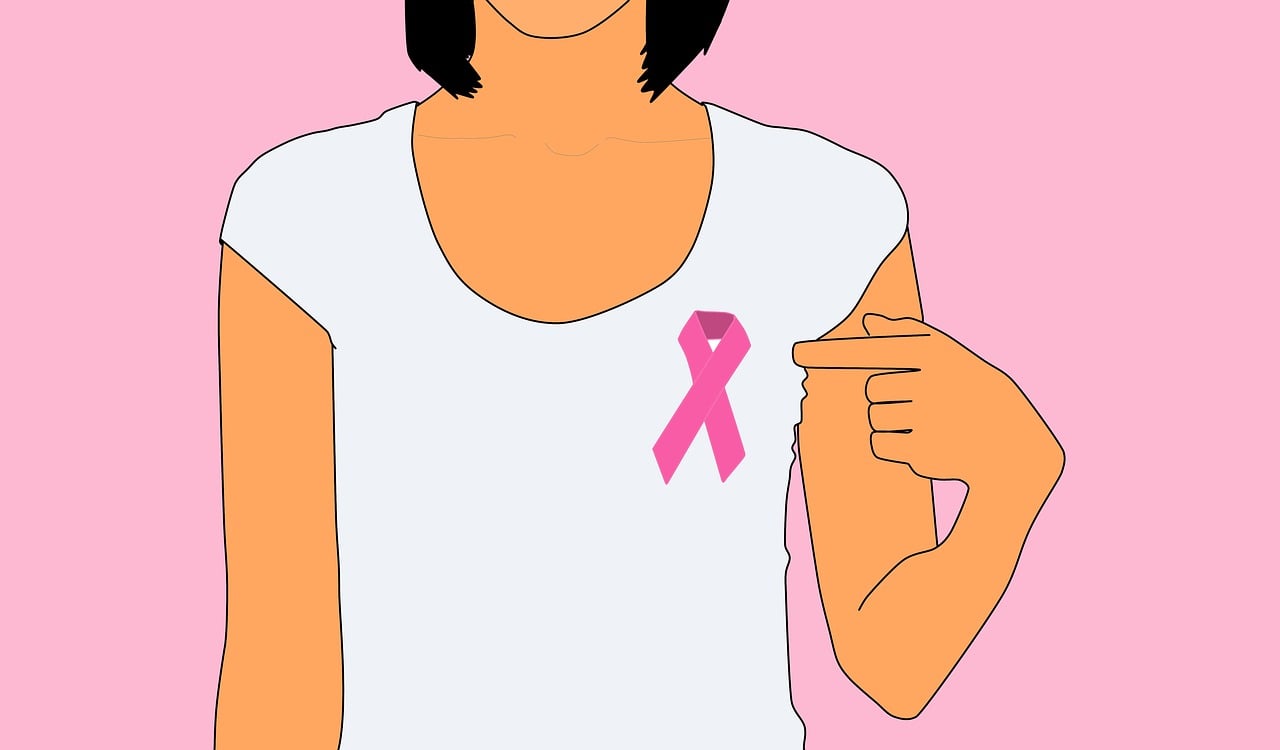## Introduction to breast cancer and common myths
Breast cancer is a topic that affects many women, yet it remains shrouded in myths and misconceptions. In this comprehensive guide, we will delve into the truth about breast cancer, debunking common myths and providing you with accurate information. It is crucial to separate fact from fiction when it comes to such a pressing issue. By understanding the truth about breast cancer, you can empower yourself and make informed decisions about your health.
One of the most prevalent breast cancer myths is the belief that only women can get breast cancer. While it is true that breast cancer primarily affects women, men can also develop this disease. Although the incidence of breast cancer in men is significantly lower, it is essential to recognize that everyone is susceptible. Breast cancer does not discriminate based on gender.
Another common myth is that finding a lump in the breast always means cancer. While it is true that a lump can be a sign of breast cancer, not all lumps are malignant. In fact, the majority of breast lumps are benign and harmless. If you discover a lump, it is crucial to consult with a healthcare professional who can perform the necessary tests and provide an accurate diagnosis.
Debunking breast cancer myths – separating fact from fiction
Breast cancer myths can create unnecessary fear and anxiety. It is crucial to separate fact from fiction to dispel these misconceptions and promote accurate knowledge. One prevalent myth is that wearing an underwire bra increases the risk of breast cancer. However, numerous scientific studies have debunked this claim. There is no substantial evidence to support the notion that underwire bras cause breast cancer. So, feel free to wear your favorite bra without worry.
Another common myth is that deodorant or antiperspirant use can lead to breast cancer. This myth has been circulating for years, causing concern among many individuals. However, research has shown no clear link between deodorant or antiperspirant use and breast cancer. The American Cancer Society states that there is no scientific evidence to support this claim. So, you can confidently continue to use your preferred deodorant without fearing an increased risk of breast cancer.
Fun and unknown facts about breast cancer
While breast cancer is a serious topic, there are some intriguing and lesser-known facts that can help us understand this disease better. Did you know that breast cancer can occur in men? Although it is rare, approximately 2,670 new cases of male breast cancer are expected in the United States alone in 2021. This highlights the importance of raising awareness among both men and women.
Another interesting fact is that breast cancer can recur even after a double mastectomy. Some people believe that a double mastectomy eliminates the risk of breast cancer, but this is not always the case. While a double mastectomy significantly reduces the risk of recurrence, there is still a small possibility of cancer returning. It is crucial for individuals who have undergone this procedure to continue regular check-ups and screenings.
Breast cancer after a double mastectomy – understanding the risks
Many women believe that a double mastectomy eliminates the risk of breast cancer entirely. While this procedure can significantly reduce the risk, it does not guarantee complete protection. In some cases, breast cancer can still occur even after a double mastectomy. This may happen due to the presence of residual breast tissue or the development of cancer in other areas of the body.
It is essential for individuals who have undergone a double mastectomy to remain vigilant and continue regular check-ups and screenings. This ensures that any potential recurrence or new cancer can be detected early, increasing the chances of successful treatment. Regular communication with healthcare professionals is crucial in managing the risk of breast cancer after a double mastectomy.
The role of aluminum deodorant in breast cancer – exploring the evidence
There has been much speculation regarding the role of aluminum deodorant in breast cancer development. Some individuals believe that the aluminum compounds found in deodorants can be absorbed by the skin and contribute to the risk of breast cancer. However, scientific research has not established a clear link between aluminum deodorant use and breast cancer.
Multiple studies have been conducted to investigate this potential association, and the results have been inconclusive. The American Cancer Society states that there is no proven link between aluminum deodorant and breast cancer. It is essential to rely on evidence-based information rather than succumbing to unfounded fears. If you have concerns about deodorant use, consult with your healthcare provider to address any questions or anxieties.
Can wearing the same bra everyday cause breast cancer?
Wearing the same bra every day is a common practice for many individuals. However, there is no evidence to support the claim that wearing the same bra every day increases the risk of breast cancer. This myth may have originated from the misconception that wearing tight or ill-fitting bras can lead to breast cancer. While it is important to wear a properly fitted bra for comfort and support, it does not impact your risk of developing breast cancer.
It is crucial to remember that various factors contribute to the development of breast cancer, including genetic predisposition, age, and lifestyle choices. Wearing the same bra every day is not one of these factors. So, you can confidently wear your favorite bra without worrying about its impact on your breast health.
The truth about putting your phone in your bra and breast cancer
There has been speculation about the potential connection between putting your phone in your bra and an increased risk of breast cancer. This myth suggests that the radiation emitted by cell phones can contribute to the development of breast cancer. However, there is no substantial scientific evidence to support this claim.
Multiple studies have been conducted to explore the potential link between cell phone use and breast cancer. To date, these studies have not found any conclusive evidence to establish a direct association. It is important to rely on evidence-based information and not let unfounded fears dictate your actions. If you have concerns about cell phone use, consult with your healthcare provider to address any questions or anxieties.
Recurrence of breast cancer after a double mastectomy – what you need to know
After undergoing a double mastectomy, individuals may believe that the risk of breast cancer recurrence is eliminated. While a double mastectomy significantly reduces the risk, it does not guarantee complete protection. There is still a small possibility that breast cancer can recur even after this procedure.
It is crucial for individuals who have undergone a double mastectomy to continue regular check-ups and screenings as advised by their healthcare provider. This ensures that any potential recurrence or new cancer can be detected early, increasing the chances of successful treatment. Early detection remains a key factor in managing the risk of breast cancer, even after a double mastectomy.
Breast cancer trivia – surprising statistics and information
Breast cancer is a prevalent disease that affects many individuals worldwide. Here are some surprising statistics and information that shed light on the impact and importance of breast cancer awareness:
- Approximately 1 in 8 women in the United States will develop invasive breast cancer in their lifetime.
- Breast cancer is the most common cancer among women globally, accounting for nearly a quarter of all cancer cases.
- In 2021, an estimated 281,550 new cases of invasive breast cancer are expected to be diagnosed in women in the United States.
- Breast cancer is not limited to women – approximately 2,670 new cases of male breast cancer are expected in the United States in 2021.
- Early detection through regular mammograms, clinical breast exams, and self-examinations significantly increases the chances of successful treatment.
Conclusion: Empowering yourself with accurate knowledge about breast cancer
Breast cancer is a topic that should not be clouded by myths and misconceptions. By debunking these myths and understanding the truth, we can empower ourselves and others with accurate knowledge. The information provided in this comprehensive guide aims to separate fact from fiction and promote awareness and understanding of breast cancer.
It is crucial to rely on evidence-based information and consult with healthcare professionals for accurate guidance. By educating ourselves and others, we can make informed decisions about our health and contribute to raising awareness about breast cancer. Together, we can dispel the myths and unravel the truth about breast cancer.
To learn more about breast cancer myths and facts, visit breastcancer.org.



